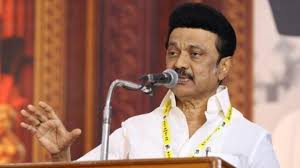Keezhadi row: Expert transferred again, CM Stalin says: ‘How many hurdles before Tamil race?’

The Keezhadi controversy has sparked fresh debates in Tamil Nadu. The sudden transfer of a key archaeological expert triggered public outrage. Chief Minister MK Stalin responded sharply. Many see the transfer as an attempt to disrupt Tamil Nadu’s efforts to protect its heritage. The issue has become a symbol of the struggle for Tamil cultural identity.
What Is the Keezhadi Site and Why It Matters
Keezhadi is a small village near Sivaganga in Tamil Nadu. Since 2015, archaeologists have uncovered a well-planned urban settlement here. It dates back to the Sangam era, around 600 BCE.
The excavation revealed artifacts such as pottery with Tamil Brahmi inscriptions, tools, and ornaments. These findings prove the existence of an advanced, literate society. Keezhadi challenges old beliefs about South India’s history. For Tamils, it is a source of pride and cultural strength.
Controversy Over the Transfer of the Keezhadi Expert
Recently, Dr. R. Sivanandam, a key archaeologist at Keezhadi, was transferred abruptly. The decision surprised many, especially since Dr. Sivanandam has long studied the site. Critics claim the transfer was politically motivated.
They warn that removing experts at such a critical stage harms the project. Keezhadi’s excavation is far from complete. Continuity is crucial for understanding the site properly.
CM Stalin’s Reaction: ‘How Many Hurdles Before the Tamil Race?’
Chief Minister MK Stalin condemned the transfer. He asked, “How many hurdles must the Tamil race face before it uncovers its history?”
Stalin accused certain groups of repeatedly blocking Tamil Nadu’s cultural efforts. He recalled past delays when the central government controlled the excavation. Stalin stressed that Keezhadi is more than a site — it is the heart of Tamil civilization.
Political and Public Reactions
The controversy sparked political debate. The ruling DMK government called the transfer part of a pattern undermining Tamil identity. Opposition parties expressed concerns, though more cautiously.
Cultural activists and scholars also criticized the move. Social media users started hashtags like #SaveKeezhadi and #TamilHeritage. They demand the expert’s reinstatement and uninterrupted excavation.
Students and academics in Tamil Nadu organized protests and seminars. They emphasized protecting archaeological expertise and stopping political interference.
Keezhadi’s Significance for Tamil Identity
For many Tamils, Keezhadi is not just about archaeology. It challenges the historical focus on northern India. It proves that the South had a sophisticated civilization early on.
Keezhadi’s discoveries reshaped views on Indian history. They highlight the long-standing cultural and linguistic continuity of Tamil people.
The Need for Stability in Research
Experts stress that frequent transfers harm archaeological work. Projects like Keezhadi need patience and consistent leadership. Without stability, crucial insights may be lost.
The Tamil Nadu government promised to protect the excavation. There are calls for giving key projects autonomy to avoid political disruptions.
What Lies Ahead for Keezhadi
The Keezhadi controversy shows how politics can affect culture. Tamil Nadu’s efforts to reclaim its history face challenges. The site remains a symbol of pride and resistance.
Whether Dr. Sivanandam returns is still unclear. But Tamils view Keezhadi as their heritage — a link to their ancient past.
This controversy reminds us that history belongs to the people, not politicians. Protecting cultural research is vital for preserving identity.






